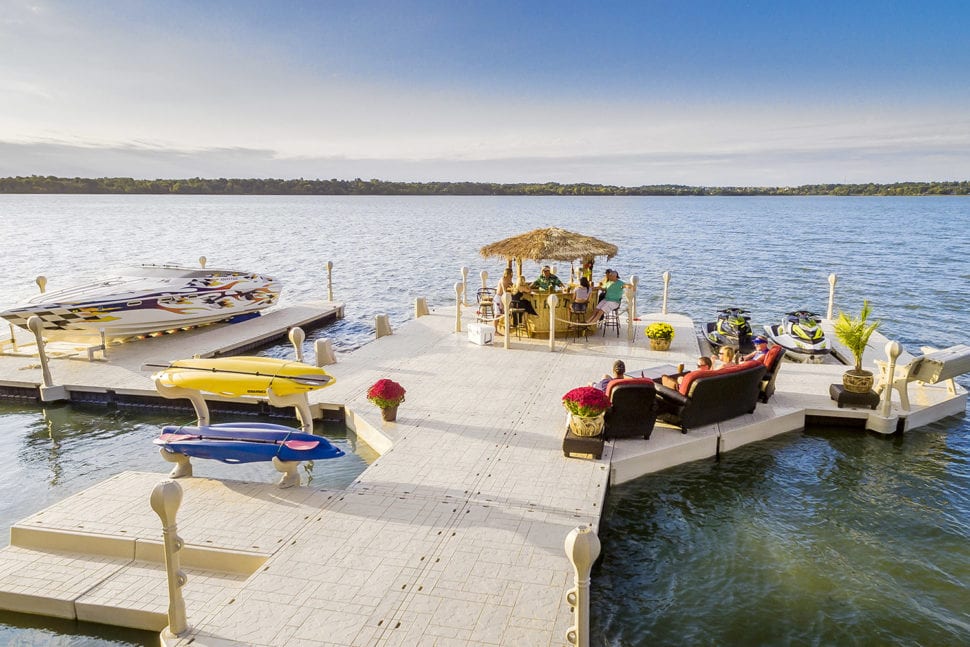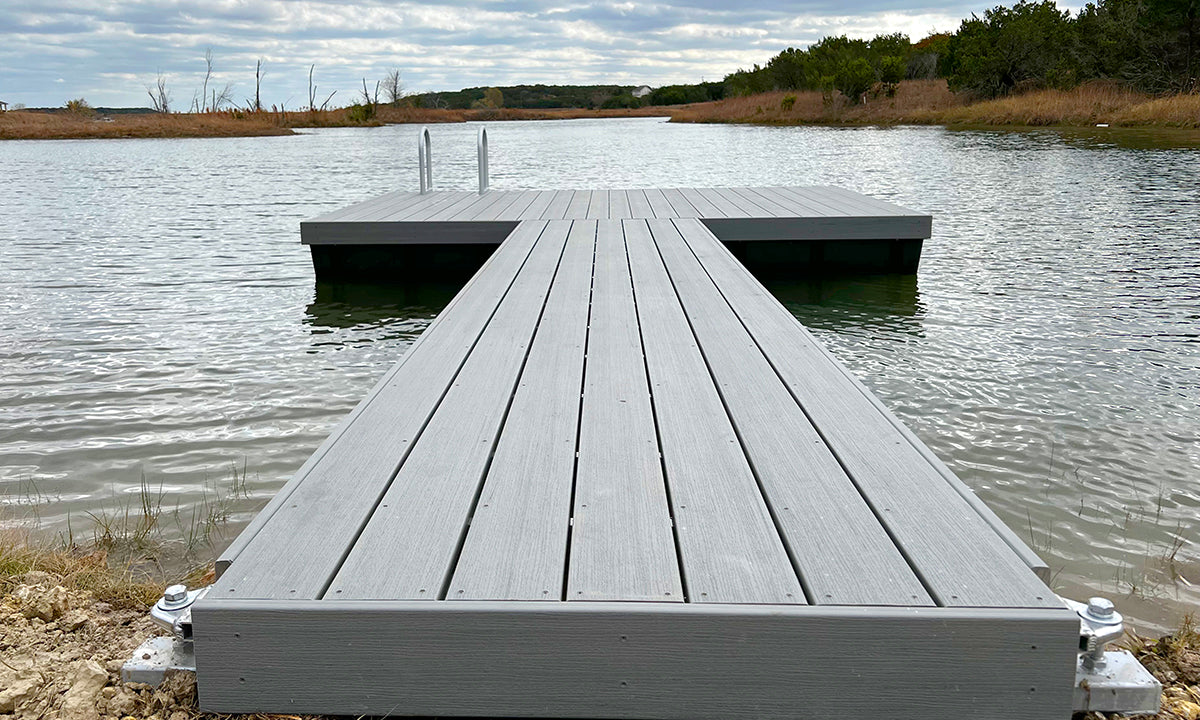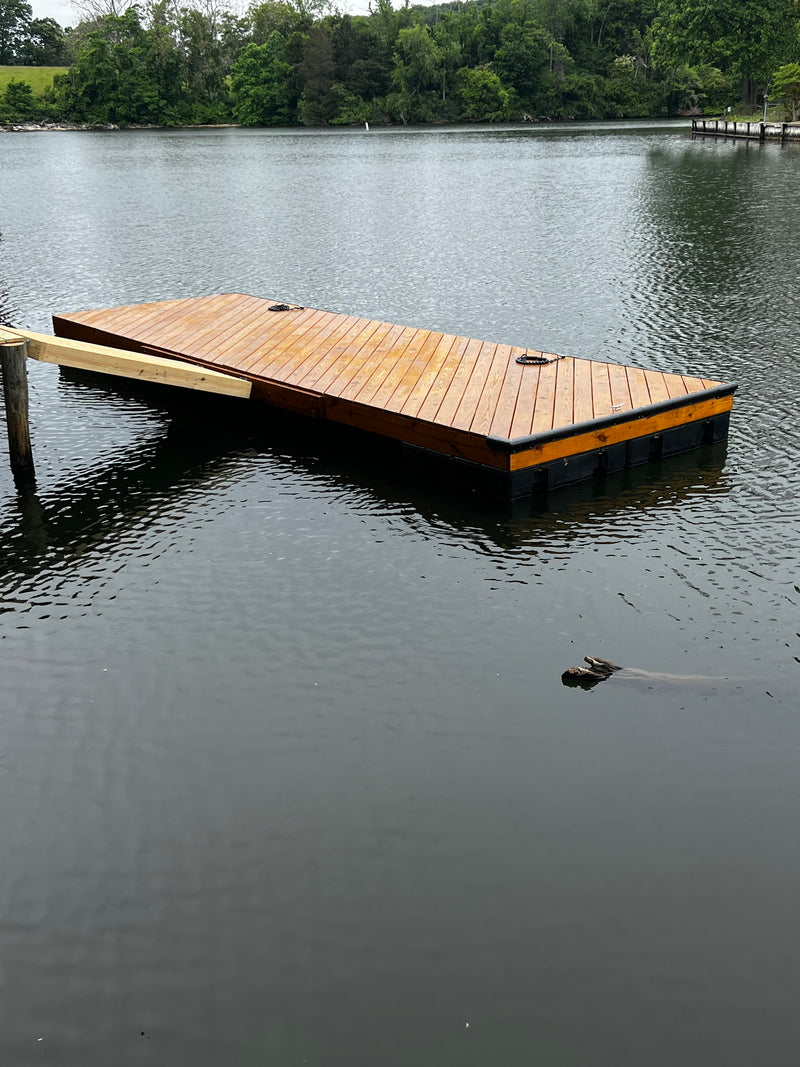How to Select the Right Floating Dock Builder for Your Custom-made Dock Needs
How to Select the Right Floating Dock Builder for Your Custom-made Dock Needs
Blog Article
The Ultimate Guide to Picking the Best Floating Docks
Choosing the suitable floating dock requires a detailed understanding of different components that influence both performance and long life. Variables such as dock kinds, materials, and essential functions dramatically affect your decision-making procedure.
Recognizing Floating Dock Kind
When selecting a drifting dock, it is important to recognize the various types available, as each offers unique purposes and applications. Floating docks primarily come under 3 classifications: modular, fixed, and pontoon docks.
Modular docks are composed of specific sections that can be quickly put together or reconfigured, making them ideal for altering water levels and diverse usages, such as entertainment activities or business procedures. Their versatility enables customization based on specific demands.

Pontoon docks are identified by their buoyant framework, typically made up of numerous pontoons that provide stability and support. They are especially appropriate for larger vessels and are typically utilized in marinas or for waterfront residential or commercial properties. Comprehending these kinds aids in choosing the most appropriate floating dock to fulfill specific demands, guaranteeing optimal capability and safety and security.
Key Products for Sturdiness
Choosing the ideal materials for floating docks substantially impacts their durability and long life. The most usual materials include timber, plastic, metal, and composite materials, each offering distinct advantages and constraints.
Timber, typically favored for its aesthetic charm, requires normal upkeep to endure dampness and decay. Pressure-treated lumber can boost resistance to rot, however it might still be at risk to bugs and weathering.

Plastic docks, made from high-density polyethylene (HDPE), are resistant to deterioration, UV radiation, and influence, making them a popular selection for coastal settings. Their lightweight nature likewise facilitates simple installation and relocation.
Steel docks, generally constructed from light weight aluminum or galvanized steel, provide phenomenal strength and longevity. They are immune to rust, especially when dealt with, yet might need additional insulation to protect against warmth buildup in warm environments.
Composite materials, integrating timber fibers and plastics, provide the advantages of both wood and plastic, withstanding wetness and fading while needing very little maintenance. - floating dock services
Ultimately, the selection of materials should straighten with ecological conditions, intended usage, and upkeep preferences to ensure the floating dock stays functional and visually pleasing with time.
Crucial Features to Consider
While the selection of materials is crucial, considering important functions for floating docks is equally essential to guarantee optimum performance and individual complete satisfaction. One key function to evaluate is the dock's buoyancy ability, which determines how much weight it can sustain without submerging. floating dock builder. This is vital for suiting watercrafts, individual boat, and also entertainment tasks
Furthermore, mobility is a considerable factor to consider. Relying on your requirements, you may desire a dock that is simple to disassemble and transport, specifically if you intend to move it seasonally. Security is an additional vital attribute; a well-designed floating dock must minimize activity brought on by wind and water currents, supplying a secure system for customers.
Safety functions, such as non-slip surfaces and rounded sides, are also essential to stop accidents, especially in wet conditions. In addition, think about the schedule of devices, such as cleats, ladders, and bumpers, which can improve the click to read more performance of your dock.
Installment and Maintenance Tips
Setting up and preserving a drifting dock calls for cautious preparation and interest to information to guarantee its longevity and optimal efficiency. Begin by selecting an appropriate location that minimizes direct exposure to strong currents and waves, which can cause wear and tear. Guarantee that the water deepness is enough for the dock's elevation which it is secured safely to prevent movement.
During installation, follow the producer's guidelines closely, as incorrect assembly can jeopardize stability. Use high-grade materials resistant to deterioration, such as light weight aluminum or dealt with wood, to improve resilience. Consistently evaluate all components, including drifts, adapters, and securing systems, for signs of damage or wear.
If your dock utilizes flotation protection tools, guarantee they remain cost-free and intact from slits. By adhering to these setup and upkeep tips, you can take pleasure in a reliable and functional floating dock for years to come.
Budgeting for Your Dock
Budgeting for your dock is a vital step that can substantially impact your total fulfillment and financial investment in a waterfront residential property. Developing a clear budget plan helps you navigate the different choices available and ensures you make notified decisions that straighten with your monetary abilities.
Begin by establishing the size and style of the dock you call for, as these elements will considerably influence the price. Floating docks can differ considerably in price, depending upon products, buoyancy, and features like devices and ramps. Research study different suppliers and vendors to compare rates and understand the marketplace worth.
Along with initial costs, think about ongoing expenses such as maintenance, insurance policy, and potential repairs. Allocate funds for these reoccuring costs to avoid shocks down the line. It's additionally sensible to allocate any type of necessary permits or evaluations, which may check out this site be required by local laws.
Finally, keep in mind the potential roi. A well-planned dock can enhance your residential property's value and allure, offering a favorable economic impact in the long-term. By budgeting successfully, you can ensure that your dock fulfills your demands without jeopardizing your monetary security.
Final Thought
In conclusion, selecting the excellent floating dock necessitates a complete evaluation of various factors, consisting of dock types, products, important features, and installation processes. Careful factor to consider of monetary restraints will better ensure an audio financial investment.

While the option of materials is crucial, thinking about vital attributes for floating docks is similarly essential to ensure ideal performance and user contentment.Setting up and maintaining a drifting dock requires mindful planning and attention to information to guarantee its long life and optimal efficiency. Floating docks can differ considerably in price, depending on products, buoyancy, and features like ramps and devices.In final thought, picking the ideal floating dock necessitates an extensive assessment of various aspects, including dock kinds, products, important attributes, and installment processes.
Report this page